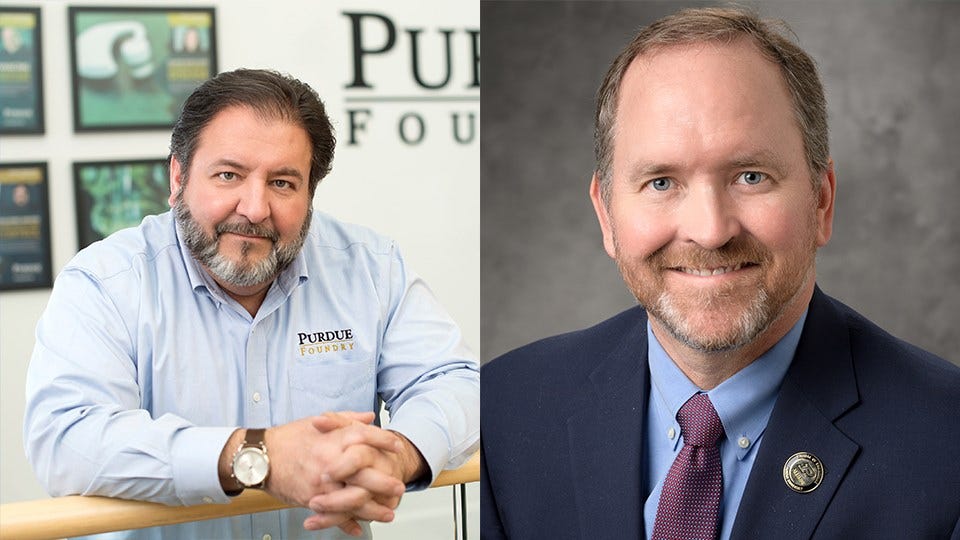Placemaking Redefined: COVID-19 Changes Plans for Community Developments
 Gregory Deason and Richard Michal
Gregory Deason and Richard Michal
Subscriber Benefit
As a subscriber you can listen to articles at work, in the car, or while you work out. Subscribe NowThere are many lessons learned from COVID-19 and even more to be learned.
Despite the devastating health, economic and quality of life impact of the pandemic, the resilience of the human spirit moves forward to advance society and create areas where people can live, work, play and learn together.
One thing we do know is that as citizens across the U.S. begin receiving promising vaccinations and communities restart their cities and towns, placemaking takes on an even greater importance in design and implementation of growing developments.
This is because COVID-19 has brought the realization that many people can successfully and productivity work from anywhere.
This fact is a game-changer that is redefining how we live and where we choose to live. The reduction or elimination of commute time and knowing that residents will likely be in the area full-time can transform the process of placemaking.
Just as people in rural communities moved en masse to big cities during the Industrial Revolution to seek work in huge factories, COVID-19, with assistance from the Digital Revolution, could empty many massive office buildings in and near metropolitan areas as people and industry take the opportunity to move to less densely populated areas.
According to a recent U-Haul special report, Americans are moving out faster in the 30 most-populated U.S. cities and relocating to less-crowded areas and have been since May. For example, 58% of U-Haul departures from the San Francisco Bay area in 2020 represented moves away from the area compared with slight move-in growth in 2019. According to the report, New York City, Oakland, San Jose and other densely populated cities experienced similar exit moves.
These changes are likely to be long-term, if not permanent, for many and the importance and interest in placemaking is dramatically increasing. Placemaking creates destinations for residents, companies and visitors. The cities and towns strive for full-scale placemaking by creating walkable communities with housing, public transportation, parks, restaurants, shopping, career opportunities, healthcare and a host of other amenities in close proximity. There is an added benefit for those areas attached to a university because it helps advance placemaking through alumni support, sporting and arts venues and learning opportunities.
Other quality of life considerations in placemaking include corridors that focus on place-based investments, community identity and development, civic structures, entrepreneurial support and the integration of economic growth.
In Indiana, two successful placemaking communities include Kite Realty Group’s Eddy Street Commons on the south side of the University of Notre Dame campus and Purdue Research Foundation’s Discovery Park District, a development transforming the western land adjacent to Purdue University in West Lafayette.
Eddy Street Commons opened in 2009 and now includes 170,000 square feet of retail, restaurant and office space, 266 apartments, 123 condominiums, 78 row/townhouses, Fairfield Inn & Suites and Embassy Suites hotels and a parking garage. New additions feature quarters for the Robinson Community Learning Center, an educational initiative of the university in partnership with the Northeast Neighborhood, approximately 450 apartment units, 8,500 square feet of restaurant space, a dog park and additional green space. The combined project represents a nearly $300 million investment in the area.
Purdue Discovery Park District, founded in 2017, is a 400-acre development created in partnership with Indianapolis-based Browning Investments Inc. The District is designed for 7 million square feet of office and business spaces, housing, parks with trails, research facilities and industrial and manufacturing facilities. The District has opened or has under construction several facilities including:
- Convergence, a 143,000-square-foot mixed-use building that serves as the “Front Door” to the District.
- Aspire, an 831-bed apartment complex designed for university students.
- Provenance, a family community under construction with more than 50 single family homes, three structures for two- and three-story townhomes and an apartment complex.
- Continuum, a three-acre apartment and commercial development.
Industry already established in the District are research, development and manufacturing facilities for Rolls-Royce North America, SAAB Global Defense and Security and Schweitzer Engineering Laboratories. The combined project represents a more than $229 million investment to date with an additional $1 billion-plus planned in the area.
In 2019, the Association of Public and Land-grant Universities bestowed Purdue University with its Innovation and Economic Prosperity Universities Award for Place for its “exemplary initiatives resulting in social, cultural, and/or community development.”
Due to the success of the Commons, the District and other such projects coupled with how COVID-19 has changed the way people work and live, placemaking is about to take a giant leap forward.
Pre-pandemic data from the U.S. Bureau of Labor Statistics reports that just 2% of salaried workers and 5% of all workers ever worked from home full-time. September 2020 data from the bureau reports that 25% of all workers are currently working from home and it is anticipated this will continue post-pandemic.
These facts matter because they redefine the designing and development of community placemaking in less densely populated areas where full-scale placemaking is most effective and creates greater choices and opportunities for people who want to live, work, play and learn in their communities.
Gregory Deason is Senior Vice President of Entrepreneurship and Placemaking and Richard Michal is Vice President and Chief Facilities Officer for the Purdue Research Foundation
